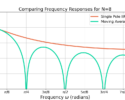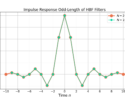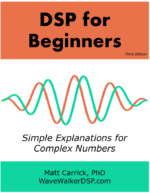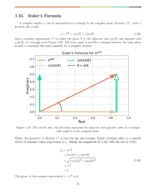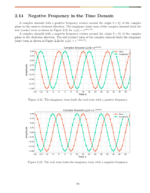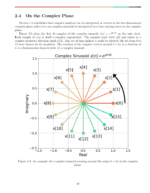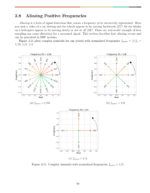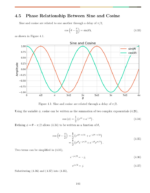Table of Contents
Introduction
Buy the book now! Yes, right now! The Almanack of Naval Ravikant is an incredible book packed with tons of wisdom on:
- Differences between wealth and money
- Being free
- Using leverage to create wealth
- A mental model for happiness
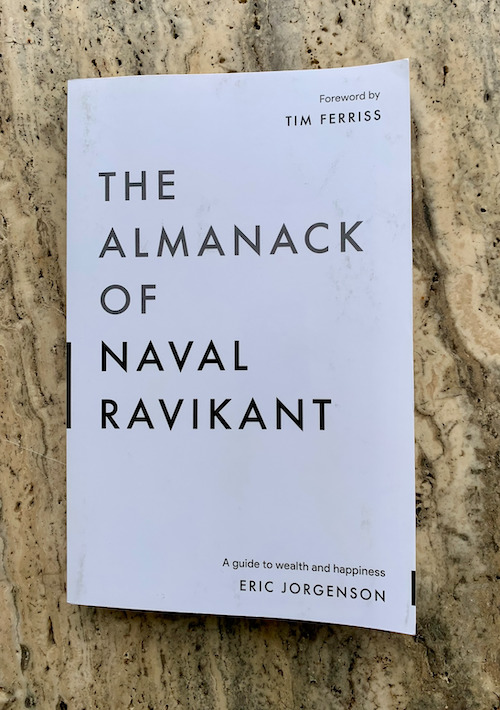
I told my friends about the book, I told my co-workers about the book, and now I’m telling you!I bought my copy on Amazon and you can also read it for free at navalmanack.com. You can follow Naval on Twitter @Naval and at nav.al.
You might enjoy these other blogs on real-world philosophy:
Wealth vs Money
One of my favorite ideas in the Almanack is distinguishing wealth and money. Here’s Naval:
Money is how we transfer wealth. Money is social credits. It is the ability to have credits and debits of other people’s time.
…
Wealth is the thing you want. Wealth is assets that earn while you sleep. Wealth is the factory, the robots, cranking out things. Wealth is the computer program that’s running at night, serving other customers. Wealth is even money in the bank that is being reinvested into other assets, and into other businesses.
…
So, my definition of wealth is much more businesses and assets that can earn while you sleep.
p.38
For the longest time I considered wealth to be a collection of large sums of money, but this definition is much more powerful. Putting the concept in my own words: money is a tool, and wealth is a system for getting more money.
Love of Money
Can we all agree that we would prefer to have more money than less money, all things considered? But be careful! Naval speaks to this:
Money is not the root of all evil; there’s nothing evil about it. But the lust for money is bad. The lust for money is not bad in a social sense. It’s not bad in the sense of “you’re a bad person for lusting for money.” It’s bad for you.
…
Lusting for money is bad for us because it is a bottomless pit.
…
The punishment for the love of money is delivered at the same time as the money. As you make money, you just want even more, and you become paranoid and fearful of losing what you do have. There’s no free lunch.
p.80
Naval alludes to 1 Timothy 6:10, which makes the same point:
For the love of money is a root of all kinds of evils. It is through this craving that some have wandered away from the faith and pierced themselves with many pangs.
1 Timothy 6:10 (ESV)
Freedom
Naval has identified money is a tool and that loving money is bad for you, yet you should pursue wealth. Why?
What you really want is freedom. You want freedom from your money problems, right? … Once you can solve your money problems, either by lowering your lifestyle or by making enough money, you want to retire.
Retirement is when you stop sacrificing today for an imaginary tomorrow. When today is complete, in an of itself, you’re retired.
p.77-78
Whenever you can in life, optimize for independence rather than pay.
p.60
Leverage
How do you create wealth? Through leverage:
We live in an age of infinite leverage, and the economic rewards for genuine intellectual curiosity have never been higher.
p.55
There are three broad classes of leverage:
One form of leverage is labor – other humans working for you. … I would argue this is the worst form of leverage you could possibly use. Managing other people is incredibly messy.
…
Money is a good form of leverage. It means every time you make a decision, you multiply it with money.
…
The final form of leverage is brand new – the most democratic form. It is “products with no marginal cost of replication.” This includes books, media, movies and code. Code is probably the most powerful form of permissionless leverage. All you need is a computer – you don’t need anyone’s permission.
p.58-59
Happiness
Money is good, but we shouldn’t love money. We want to use leverage to create wealth to make us free. What else is there? Happiness:
Happiness is there when you remove the sense of something missing in your life.
…
To me, happiness is not about positive thoughts. It’s not about negative thoughts. It’s about the absence of desire, especially the absence of desire for external things.
p.129
Happiness is a choice you make and a skill you develop.
p.134
Conclusion
The Almanack of Naval Ravikant is an incredible book. Every page is packed with wisdom and it’s super easy to read. You can buy the book at Amazon, or read it for free at navalmanack.com. Do yourself a favor and buy a copy today!
Here’s Naval on the Tim Ferris show:
You might enjoy these other blogs on real-world philosophy:

